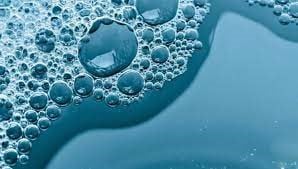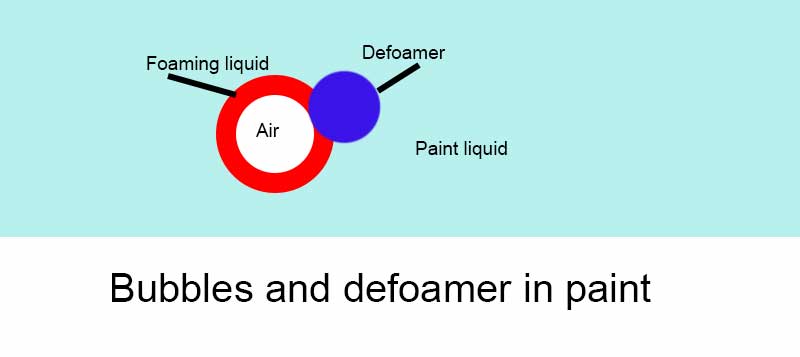Why Defoamers Are Essential in Water Treatment and Waste Management
Why Defoamers Are Essential in Water Treatment and Waste Management
Blog Article
The Role of Defoamers in Enhancing Item High Quality and Efficiency
Defoamers serve as necessary ingredients that minimize this problem, making certain smoother production workflows while improving the functional and aesthetic qualities of the last products. The option of the ideal defoamer can be critical to accomplishing ideal results, increasing crucial questions about solution compatibility and performance metrics that merit further expedition.
Recognizing Defoamers
Understanding the role of defoamers is essential for keeping item quality throughout different markets. Defoamers are chemical additives created to stop the development and lower of foam in fluid systems, which can detrimentally impact processes such as mixing, filling up, and surface tension. Frothing can result in inadequacies, item problems, and jeopardized aesthetic charm, making defoamers a crucial component in producing procedures.
In commercial applications, defoamers assist to boost product consistency and security. The reliable use of defoamers not only ensures smoother production processes however likewise contributes to premium product efficiency.
Furthermore, the choice and formulation of a defoamer have to line up with details application demands, such as compatibility with various other ingredients, effectiveness under differing temperature level and pH conditions, and prospective regulatory restrictions. Ultimately, comprehending defoamers' features and their value in numerous formulations is vital for optimizing production and making certain the best quality output.
Sorts Of Defoamers
Defoamers can be classified into numerous kinds based on their structure and system of activity. The primary types include silicone-based, non-silicone natural, and not natural defoamers.
Silicone-based defoamers are amongst the most efficient, mostly as a result of their capacity to spread rapidly on the liquid surface area and interfere with foam development. Their unique chemical structure enables remarkable security, making them appropriate for high-temperature applications and settings with differing pH levels.
Non-silicone natural defoamers, usually composed of fatty acids or natural oils, are valued for their biodegradability and lower poisoning. These are typically utilized in food and drink applications where security and ecological impact are paramount.
Inorganic defoamers, which consist of materials like talc or calcium carbonate, act by raising the thickness of the fluid, consequently reducing foam stability. They are frequently utilized in industrial procedures where compatibility with various other products is not a worry.
Each kind of defoamer has unique benefits and constraints, permitting for customized options depending upon the details foaming concerns run into in different applications. Comprehending these distinctions is crucial for maximizing efficiency and accomplishing desired item quality.
Applications Across Industries
Countless sectors take advantage of defoamers to improve product high quality and functional efficiency. In the food and drink field, defoamers are crucial in procedures such as brewing and dairy manufacturing to stop foam development, which can bring about ineffectiveness and product incongruity. By managing foam, producers can make certain better return and an extra uniform product.
In the pharmaceutical sector, defoamers play an important role in the formulation of fluid medicines, where excessive foam can hinder mixing and accurate application. Their use assists maintain the stability of the formulas and facilitates smoother production procedures.
The paint and finishes industry additionally relies upon defoamers to boost the performance of products throughout application. By lessening foam, these additives ensure a smoother surface and boost the visual qualities of the final item.

Benefits of Making Use Of Defoamers
While the application of defoamers differs throughout sectors, their benefits regularly boost product quality and procedure performance. One substantial benefit is the decrease of foam development during manufacturing processes, which can or else result in production hold-ups and inconsistencies in item quality. By lessening foam, defoamers Continued allow a smoother flow of products, assisting in a lot more effective procedures and decreasing the likelihood of devices malfunctions.
Furthermore, the use of defoamers can boost the appearance and appearance of end products. In fields such as coatings, paints, and food handling, excessive foam can endanger the aesthetic looks and overall high quality, while the proper defoamer application makes sure an uniform surface and desirable attributes. Additionally, defoamers can add to cost financial savings by lowering waste during manufacturing and optimizing the usage of resources (defoamers).

Choosing the Right Defoamer
Choosing the right defoamer is check my site important for optimizing production procedures and making sure item quality. The choice of defoamer affects not just the effectiveness of foam control yet likewise the general efficiency features of the end product. Elements to think about include the kind of application, the chemistry of the solution, and the environmental problems under which the item will be used.
Different industries might need details defoamer kinds, such as silicone-based, natural, or polymeric defoamers. Recognizing the compatibility of the defoamer with the primary components is necessary to avoid negative reactions that can endanger product integrity. Additionally, the defoamer's efficiency in various temperature levels and pH degrees need to be assessed to make certain regular efficiency.
Evaluating the defoamer in small applications can supply useful insights right into its performance and viability. Factor to consider of regulatory conformity, especially in food, pharmaceuticals, and cosmetics, is critical in selecting a defoamer. Eventually, an extensive assessment of these factors will bring about the option of a defoamer that not just manages foam efficiently however likewise enhances the quality and efficiency of the final product.
Conclusion

Finally, defoamers are vital additives that dramatically enhance product top quality and performance across different sectors. By successfully minimizing foam development, these representatives not just boost functional performance but likewise contribute to the aesthetic and useful honesty of products. The calculated choice and application of defoamers bring about set you back savings, maximized resource usage, and enhanced client satisfaction. On the whole, the relevance of defoamers in industrial processes can not be overstated, as they play an essential duty in attaining high-grade and regular end results.
Lathering can lead to inefficiencies, product problems, and endangered visual appeal, making defoamers an essential component in making procedures.

Report this page